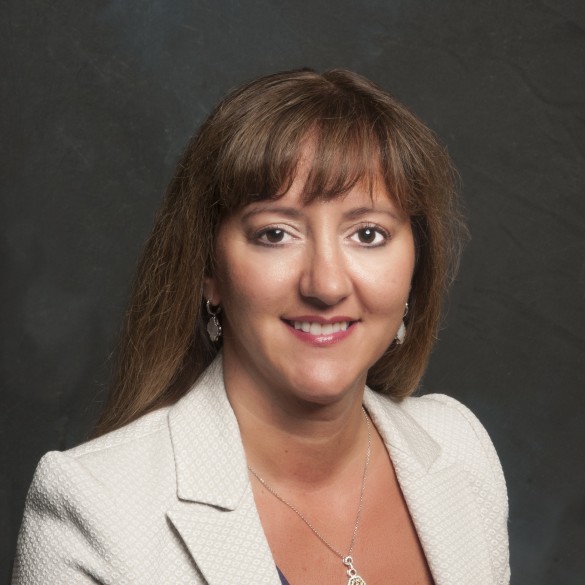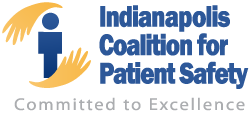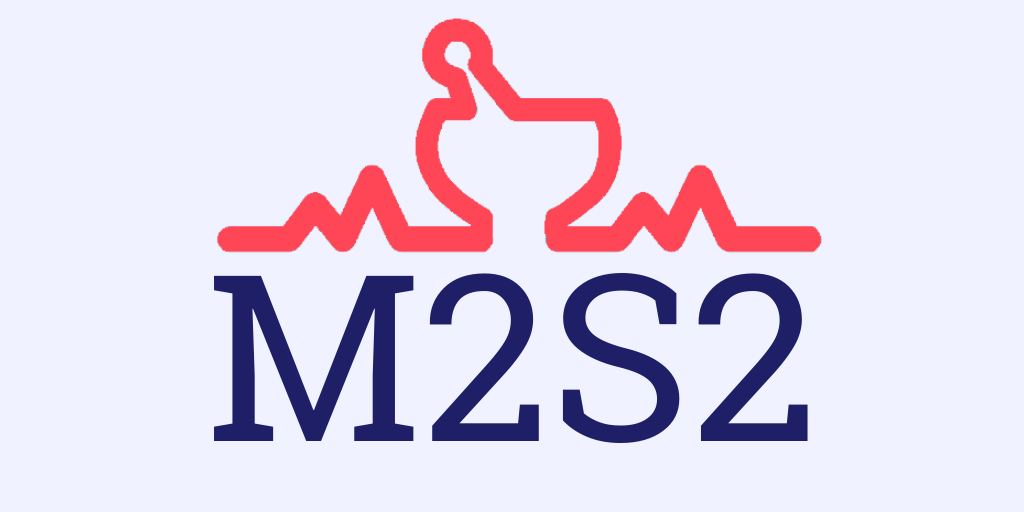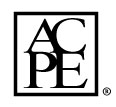|
Scroll to the bottom of the page to register! Register for just $200!
Pharmacy residents may register for $150. Pharmacy students may register for $50.
A total of 11.0 contact hours of CPE credit are offered. Pharmacists attending the full conference can earn a maximum total of 10.0 contact hours of CPE credit.
|

|
KEYNOTE SPEAKER: CHRISTINA MICHALEK
|
|
 |
Christina Michalek is a Medication Safety Specialist and serves as the Administrative Coordinator for the Medication Safety Officers Society at the Institute for Safe Medication Practices. She works collaboratively with health-system leaders and clinical staff participating in proactive risk assessments, targeted risk assessments, root cause analyses, and educational seminars and workshops to define and improve medication safety initiatives. Under contract to the Patient Safety Authority, she served a Patient Safety Analyst for the Pennsylvania Patient Safety Reporting System and she is an analytic contractor for the ECRI Institute Patient Safety Organization. Christina has more than 20 years of acute care hospital pharmacy experience involving clinical practice, management, and leadership. She is a residency-trained graduate of the University of the Sciences’ Philadelphia College of Pharmacy and a Fellow of the American Society of Health-System Pharmacists.
|
| Hosting Organizations: | Location Information: | Hotel Information: | ||
   |
St. Louis College of Pharmacy
Academic & Research Building
4588 Parkview Place
St. Louis, MO 63110
Parking Information
Please note that there are DIFFERENT parking instructions for Friday and Saturday. STLCOP Students and Faculty must continue to park as their hang tags allow.
On FRIDAY, please park at the Laclede Garage located at 4929 Forest Park Ave, 63108. When you arrive, you will be given a parking validation ticket so you can exit the garage later.
On SATURDAY, park at the STLCOP garage located at 4531 Children's Place, 63110. You will not need a validation ticket to exit the garage
|
The Parkway Hotel
4550 Forest Park Avenue
St. Louis, MO 63108
Located within walking distance of the college! Discounted rooms are no longer available; however, guests may still reserve rooms at the hotel's regular rate by calling the number below.
Call 314.256.7777 or visit theparkwayhotel.com
|
||
| Sponsored by: | Follow us! | Fun Things to Do in St. Louis: | ||
|
Platinum Sponsors:
Baxter
MedTronic
Portola Pharmaceuticals
St. Louis College of Pharmacy
Gold Sponsors:
DYNALABS
Healthcare Infection Control Solutions
Merck
Relypsa, Inc.
Silver Sponsors:
Novartis Pharmaceuticals Corporation
Primaris
Bronze Sponsors:
Indianapolis Coalition for Patient Safety
Mercy Hospital
|
 |
Balloon Glow in Forest Park
Friday, September 20, 2019
5:00 PM - Join us after the conference!
|
||
|
REGISTER BELOW!
Scroll to the bottom of the page. Registration fee is $200.
|
Date: Sep 20, 2019 07:30 AM - Sep 21, 2019 02:00 PM
Fee
CE Hours
Registration closes on Sep 20, 2019 12:00 AM
Activity Type
- Knowledge and Application
Target Audience(s)
- Pharmacists
Accreditation(s)

|
St. Louis College of Pharmacy at the University of Health Sciences and Pharmacy in St. Louis is accredited by the Accreditation Council for Pharmacy Education as a provider of continuing pharmacy education. To learn more about the specific program information, including universal activity numbers (UAN's) and learning objectives, please expand the modules below. Following successful completion of an evaluation, CE credit will be automatically reported to NABP through the CPE Monitor system, using the NABP ePID numbers and date of birth (MMDD) stored in participants' user profiles. Follow this link to learn more about CPE Monitor and the credit reporting process » Participants are responsible for ensuring receipt of credit; no credit can be corrected or awarded if more than 60 days have passed from the date of the event or if the home study is expired.
It is the policy of St. Louis College of Pharmacy at the University of Health Sciences and Pharmacy in St. Louis, to ensure balance, independence, objectivity and scientific rigor in all its educational programs. All faculty participating in this program are expected to disclose to the program audience any real or apparent conflicts of interest related to the content of the presentation.
|
Joint Provider(s)
Requirements for CE Credit
- Register and pay with a valid account, including an accurate NABP e-Profile ID and date of birth (month and day).
- Attend all sessions.
- Complete an online evaluation for each session attended on this page (must be logged in to complete). Evaluations are available until October 3rd after which time they will close and credit can no longer be claimed. If you miss the evaluation deadline, an additional fee may be incurred for late CE submission; please refer to our policy on the FAQ page for additional details.
|
Learn more! Click the + symbol beside each session to expand.
|
|
Please choose a Fee Type from the Drop Down Menu Below:
I am a
|
Registration closes on Sep 20, 2019
at 12:00 AM
Registration Closed
Objectives
- Identify examples of latent and active failures that play a contributing role in medication errors.
- Identify key elements of the medication use system that contribute to medication errors.
- Use proven safety tools to investigate system-based causes of medication error and reach actionable conclusions through successful error analysis.
Speaker(s)/Author(s)
|
Christina Michalek, Pharm.D.
Brief Bio : Christina Michalek is a Medication Safety Specialist and serves as the Administrative Coordinator for the Medication Safety Officers Society at the Institute for Safe Medication Practices. She works collaboratively with health-system leaders and clinical staff participating in proactive risk assessments, targeted risk assessments, root cause analyses, and educational seminars and workshops to define and improve medication safety initiatives. Under contract to the Patient Safety Authority, she served a Patient Safety Analyst for the Pennsylvania Patient Safety Reporting System and she is an analytic contractor for the ECRI Institute Patient Safety Organization. Christina has more than 20 years of acute care hospital pharmacy experience involving clinical practice, management, and leadership. She is a residency-trained graduate of the University of the Sciences’ Philadelphia College of Pharmacy and a Fellow of the American Society of Health-System Pharmacists. |
Activity Number
0033-9999-19-074-L05-PCE Hours
Location
Registration Closed
Objectives
- Identify key elements of a medication safety strategic plan.
- Identify appropriate strategic goals for medication safety strategic plans.
- Identify the tools needed for developing a medication safety strategic plan.
Speaker(s)/Author(s)
|
Melissa M. Diamond, BA, MS, PharmD, CRPh
|
Activity Number
0033-9999-19-063-L05-PCE Hours
Location
Registration Closed
Objectives
- List the benefits of confirming an accurate, measured patient body weight on all newly admitted patients.
- Explain the required elements for describing a culture of awareness that supports the purpose of a safety goal with respect to accurate patient weight reporting.
Speaker(s)/Author(s)
|
Bonnie B. Jump, RDN, CSG, LD
|
|
|
Donna Poole, BSN, RN
|
|
|
Jessica Stauffer-Engelbrecht, MS, RDN, LD, CNSC
|
|
|
Kalli Castille, MS, RD, LD, FAND
|
Activity Number
0033-9999-19-070-L05-PCE Hours
Location
Registration Closed
Objectives
- Identify potential barriers to performing accurate, reliable medication reconciliations.
- List some of the most common mistakes made during medication reconciliation.
Speaker(s)/Author(s)
|
Madeline Normansell, Pharm.D.
|
Activity Number
0033-9999-19-077-L05-PCE Hours
Location
Registration Closed
Objectives
- Identify practices related to safe and appropriate ADC use, including those related to medication overrides, based on accreditation standards and safety guidelines.
- Recognize unique systems issues and human factors that complicate efforts to improve appropriateness of medication overrides.
Speaker(s)/Author(s)
|
Ethan Wahl, Pharm.D.
|
Activity Number
0033-9999-19-065-L05-PCE Hours
Location
Registration Closed
Objectives
- Identify the steps of the process of implementing a medication take-back program.
- Identify key stakeholders for collaboration in order to create and implement a successful medication take-back program.
Speaker(s)/Author(s)
|
Kathryn Wdowiarz, Pharm.D., BCPS
|
|
|
Tina Bobo, RN, MSN
|
Activity Number
0033-9999-19-075-L05-PCE Hours
Location
Registration Closed
Objectives
- Identify the most effective error prevention strategy.
- Predict when a ??work-around????should be proactively identified and guarded against prior to implementation of interventions
Speaker(s)/Author(s)
|
Joel Daniel, Pharm.D., MS, CPPS
|
Activity Number
0033-9999-19-071-L05-PCE Hours
Location
Registration Closed
Objectives
- Identify what patients want to hear when a medical error occurs.
- Identify components of a medication error disclosure framework.
Speaker(s)/Author(s)
|
Jennifer Mazan, Pharm.D.
|
Activity Number
0033-9999-19-067-L05-PCE Hours
Location
Registration Closed
Objectives
- Identify how hindsight bias limits the ability to learn from system failures.
- Identify the steps to investigate safety events to reveal goal conflicts.
- Identify types of goal conflicts that can lead to unsafe practices in healthcare.
Speaker(s)/Author(s)
|
Charlene Hope, Pharm.D., MS, BCPS, CPPS
|
Activity Number
0033-9999-19-072-H05-P
CE Hours
Location
Registration Closed
Objectives
- Define the ways an Escape Room can be utilized to teach and encourage a medication safety culture.
- Given an Escape Room scenario, identify the medication error.
- Identify opportunities within one's home practice to incorporate an Escape Room to address medication safety concerns.
Speaker(s)/Author(s)
|
Amanda Place, Pharm.D., BCACP
|
|
|
Heather A. Dossett, Pharm.D., MHA, BCPS, CPHQ
|
Activity Number
0033-9999-19-078-L05-PCE Hours
Location
Registration closes on Sep 20, 2019
at 12:00 AM
Registration Closed
Objectives
- Recall at least three practices that aid in improved pain management.
- Compare the different treatment modalities between the current and new pain management processes.
- Explain how to use the therapeutic activity goal to assess the need for opioid administration.
Speaker(s)/Author(s)
|
Judy Henderson, RN MSAH-M
|
|
|
Karen R. Smethers, BS, Pharm.D., BCOP
|
Activity Number
0033-9999-19-068-L01-PCE Hours
Location
Registration Closed
Objectives
- List 3 Medication Saving Behaviors-related problems.
- Classify proper usage, storage, and disposal of sample drugs.
Speaker(s)/Author(s)
|
Melanie VanDyke, PhD
|
Activity Number
0033-9999-19-066-L05-PCE Hours
Location
Registration Closed
Objectives
- Compare and contrast the pharmacology, adverse reactions, and interactions of THC and CBD.
- Identify the risks and benefits of cannabidiol (CBD) products.
Speaker(s)/Author(s)
|
Gregory P. Burger, Pharm.D., CPPS, NREMT, FASHP
|
Activity Number
0033-9999-19-069-L01-PCE Hours
Location
Registration Closed
Objectives
- Identify three primary goals of good system design relative to safe medication use.
- Differentiate between high leverage and low leverage error reduction strategies.
Speaker(s)/Author(s)
|
Melissa M. Diamond, BA, MS, PharmD, CRPh
|
Activity Number
0033-9999-19-064-L05-PCE Hours
Location
Registration Closed
Learning Objective: Identify when a tabletop simulation is appropriate as a CQI tool.
Learning Objective: Describe the various benefits which may be seen when collaborating with vendors during new product development
Learning Objective: Recognize patients who have an indication for U500 regular insulin.
Learning Objective: Describe the current state of Opioid-Induced Respiratory Depression (OIRD) assessment algorithms, and their strengths and weaknesses.
Objectives
- Describe the current state of Opioid-Induced Respiratory Depression (OIRD) assessment algorithms, and their strengths and weaknesses.
- Describe the various benefits which may be seen when collaborating with vendors during new product development
- Identify when a tabletop simulation is appropriate as a CQI tool.
- Recognize patients who have an indication for U500 regular insulin.
- Identify potential adverse drug reactions that may occur with antibiotic-lock therapy use secondary to system and knowledge gaps.
- Explain the benefit of guided reminders when sterile compounding for the pediatric population.
- Explain potential benefits of standardizing concentrations of oral compounded medications.
Speaker(s)/Author(s)
|
Alexander Milligan, Pharm.D.
|
|
|
Damon B. Pabst, RPh
|
|
|
Jessalynn Henney, Pharm.D.
|
|
|
Joel Daniel, Pharm.D., MS, CPPS
|
|
|
Kelsey Habighorst
|
|
|
Lauren Odum, Pharm.D., BCPS
|
|
|
Mallory Linck, Pharm.D.
|
|
|
Melissa Mays, Pharm.D.
|
|
|
Nathan Walleser, Pharm.D., BCPS
|
|
|
Paul Milligan, Pharm.D.
|


